The Ultimate Grocery List for Athletes (With Printable!)
- September 3, 2024
- Last Updated: June 26, 2025
- 0 Comments
- Sports Nutrition
Inside: This grocery list for athletes is a helpful tool for athletes to ensure they are eating balanced meals to improve performance and day to day energy levels.
As an Amazon Associate, I may earn from qualifying purchases. You can read more here about our Disclaimer and Privacy Page.
While I talk a lot about healthy foods and easy recipes, I’ve never created a runners grocery list and it was time.
As a sports dietitian and former athlete myself, I can see that these recommendations are needed and would be helpful.
So, I sought to create an easy (FREE!) resource for you (the best grocery list!) for your next grocery trip.
It’ll break down options for fresh produce, healthy fats, and different kinds of foods to consider for the endurance athlete.

And I’m not just going to tell you to shop the perimeter of the grocery store – sports nutrition is a bit more nuanced than that.
Nutrition recommendations have changed since then – food companies have created many healthy packaged items, convenience foods, beans and legumes and breakfast cereals in those middle aisles that can benefit your workouts and recovery!
I always recommend having a variety of pantry staples for running, but in terms of the athlete grocery list, let’s list some nutrient-dense options out for each category to point you in the right direction.
Want a printable grocery list for athletes? Scroll down for a printable grocery list for athletes.
This post can serve as a wonderful resource for athletes in the beginning stages of simple meal prep, whether you follow a vegan athlete diet or just enjoy simple athlete nutrition recipes.
Grocery shopping doesn’t need to be confusing anymore!
This runners shopping list is broken down into carbs, fats, protein, snack foods and even convenience items I recommend in my cart, to make your athlete snacks easy to organize!
If you want to see what a sample day looks like with many of these options, check out what I ate on a 20 mile run day.
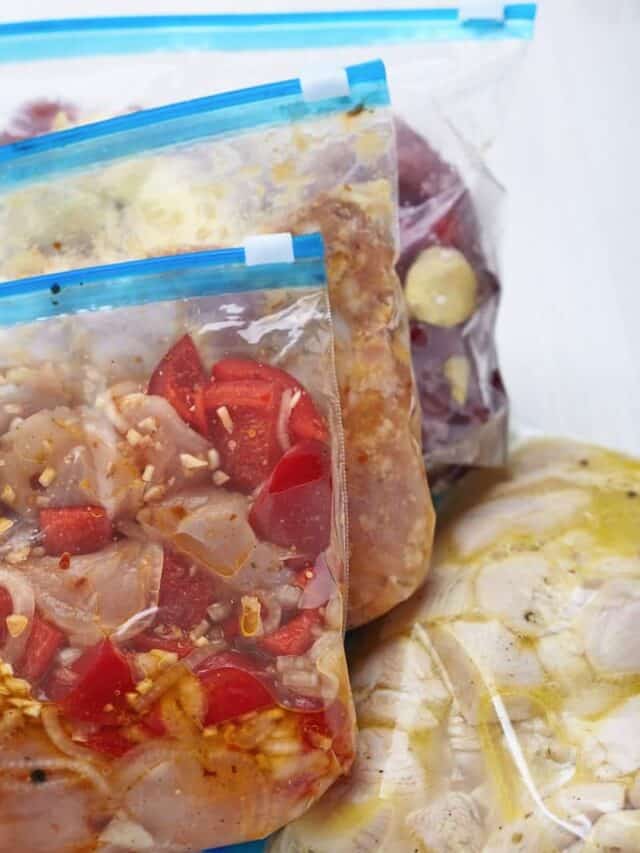
How to Optimize a Grocery List for Athletes
So if you’re looking for a game plan for your weekly shopping list, good news, I’ve got you covered! The list can also help prep you for when you don’t know what to eat.
When planning your grocery shopping, you want to think about all of the food groups. Remember our performance plates?
Having foods from each food group will ensure we are meeting our nutrient needs for essential nutrients, while minimizing added sugars.
However, there is room for variety, as we all have different nutritional needs and living situations.
Hence, the extent of what you buy may depend on several questions and life situations.
Considerations:
- are you following a half marathon nutrition plan or are you in the off season?
- Are you feeding young athletes? (See more on nutrition for teenage athletes need here)
- How often are you exercising? The higher intensity/volume, the more (often) you need to eat
- Do you follow a certain diet? (i.e. vegan diet, vegetarian foods, dairy free)
- Do you have access to Factor Meals? They offer high protein options!
- Are you low in any specific nutrients? (i.e. – iron, calcium, protein, vitamin D, omega 3) – Consider this post if iron supplements for runners are necessary.
- Are you on any medications or supplements, as prescribed by a doctor?
- Do you like to cook or prefer convenience foods?
- Do you prefer to meal prep breakfast, lunches, dinner, snacks, or a combination?
- Should you subscibe to something like Thrive Market for easy snacks? I love it!
- Do you need to focus on the the best pre game snacks or snacks for after a workout?
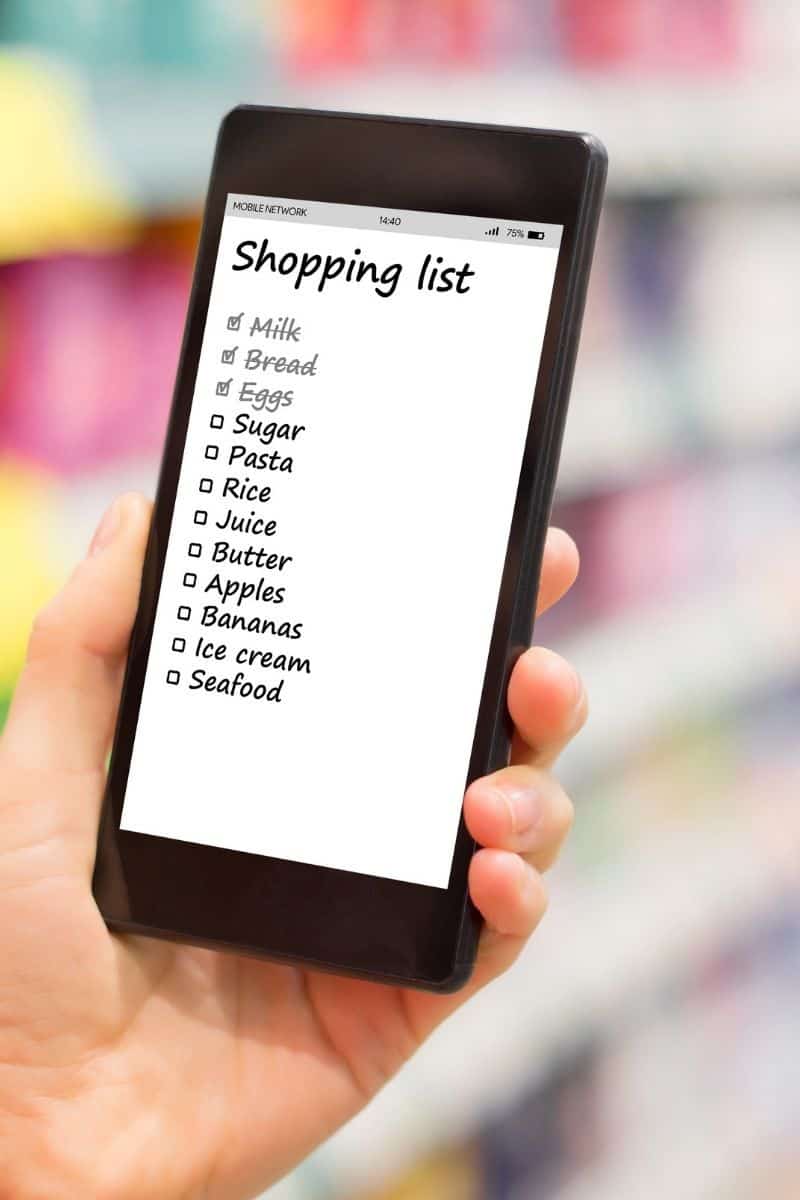
I try to keep many carbohydrate staples on hand, so my lunch ideas for runners are always front and center.
We also do a majority of this vegan breakfast prep each week.
Carbs for Athletes
Carbohydrate intake is often the foundation of an athlete’s diet, and it’s a good general rule to load up your pantry with easy carbohydrate staples, with a mix of complex carbohydrates and simple carbohydrates.
Complex carbohydrates are a good source of fiber, and can be great for balanced lunches and dinners to hold you over.
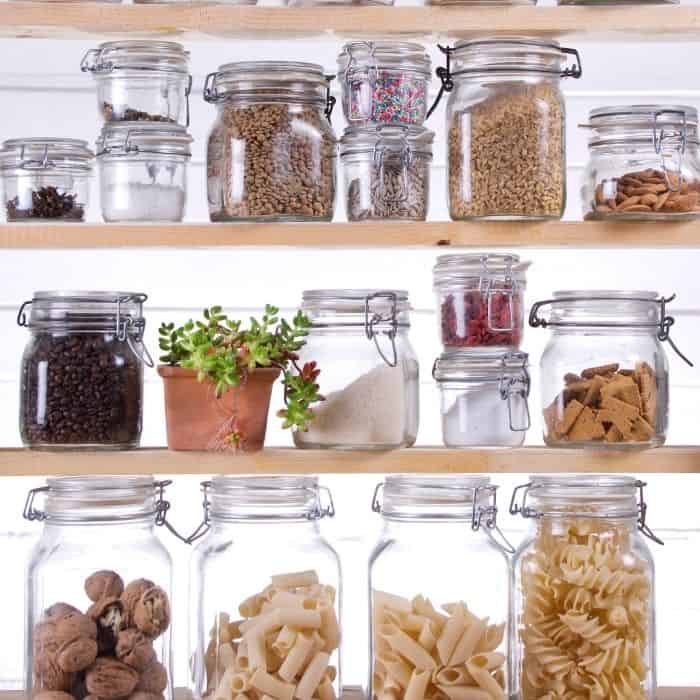
Simple carbohydrates, on the other hand, are great to eat before your workout because they provide quick energy and won’t take as long to digest.
I get most of my carbohydrate-based stables from Thrive Market. As a member, you save more money, and it’s easy to just schedule deliveries when you’re close to running out.
Thrive Market is kind of like a blend between Trader Joe’s and Aldi’s – unique items at a low cost. It’s amazing.
And if you need some meal ideas for college students, we have plenty of budget friendly ideas!
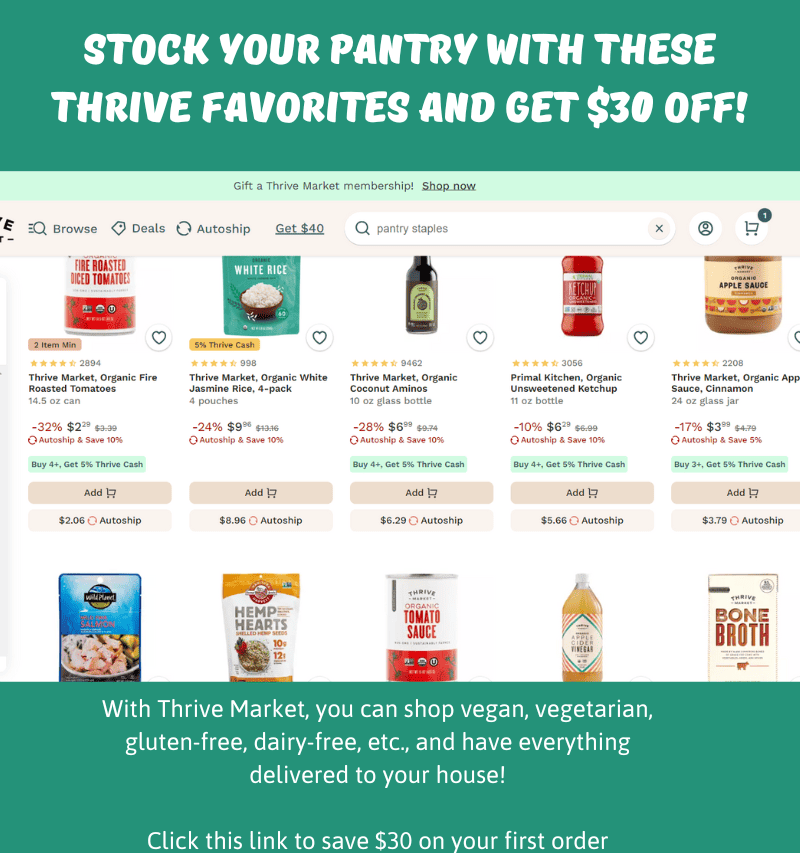
Some of my favorite high carb foods for runners are:
- whole grains (rice, quinoa, millet) – We really love these instant Seeds of Change packs to make this 10 minute quinoa and brown rice salad
- pasta (chickpea pasta is a good option for extra protein!)
- breads, tortillas – to make epic sandwiches, like a bruschetta chicken sandwich
- crackers, chips
- fruit (dried, fresh, frozen) – While fresh produce may be more palatable, frozen and dried may give you more bang for your buck in terms of cost and storage potential. Dried fruit is also more concentrated and can be a great way to get more carbs in.
- granola (for storebought, this and this are my favorite)
- starchy and canned veggies – beets, corn, beans, pumpkin
- oats
- dates
- Sun-maid and sour raisins
- popcorn
- cereal – this can be especially great if you have no appetite after workout
- snack bars (or you can make your own hemp seed bars for extra protein!)
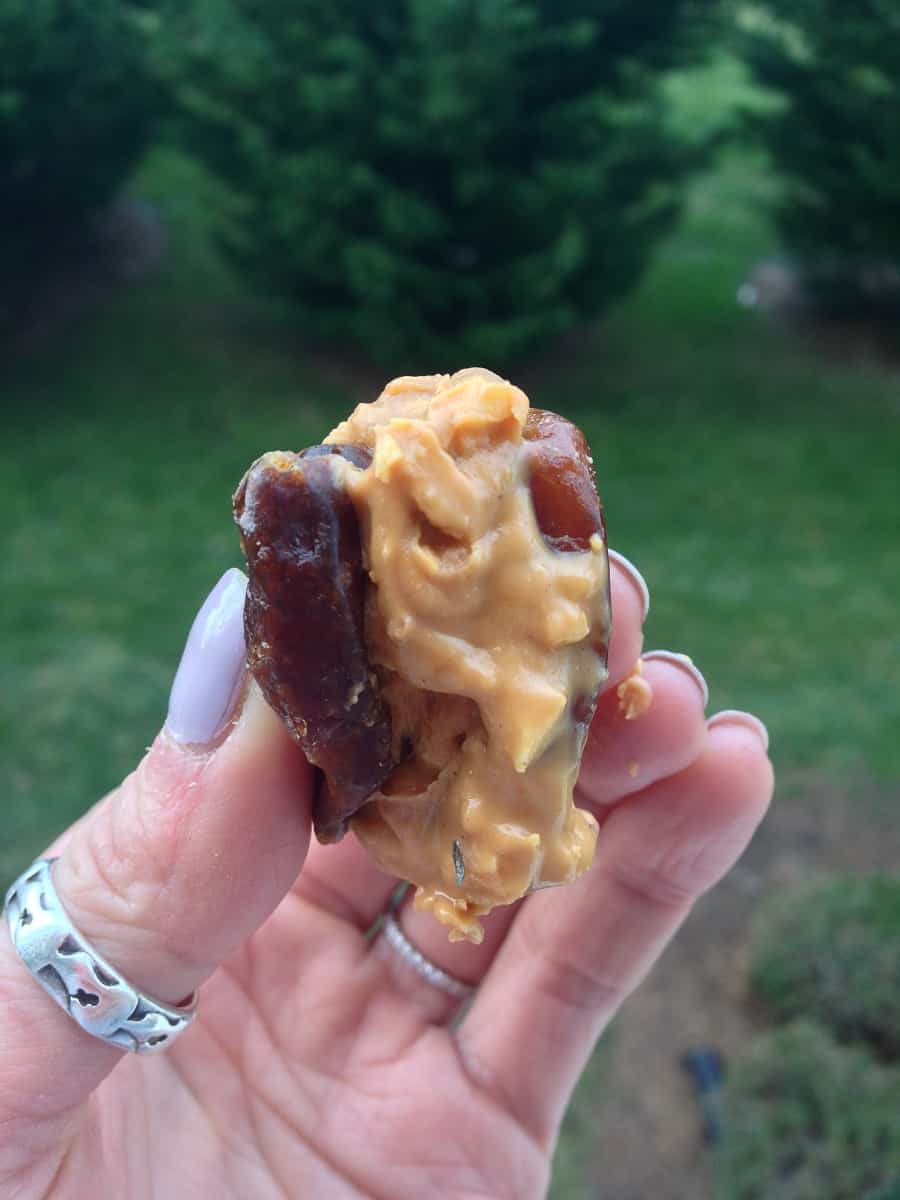
Having these foods readily available and stocked will make high carb snacks for athletes and homemade running snacks easy and attainable.
Some great carb snacks include:
- Cinnamon Maple Granola
- Vegan Protein Bites
- Gluten free Blueberry Muffins
- Vegan Hemp Protein Bars
- Apple Pumpkin Pie Baked Oatmeal
I can usually also make my breakfast based on many of these staples. Here are some more ideas for Breakfast for Athletes on the go.
Protein Foods for Athletes
This athletes grocery list includes both meat based and plant-based protein options for a plant-based diet so shop accordingly!
If you follow a vegan diet for runners, there are still plenty of meal options and ways to meet your needs for protein for athletes.
Similarly, nutritional yeast is a great option for vegan runners because of its nutritional profile.
I like seeing my athletes have a high protein grocery list because we want adequate protein at each meal and snack.
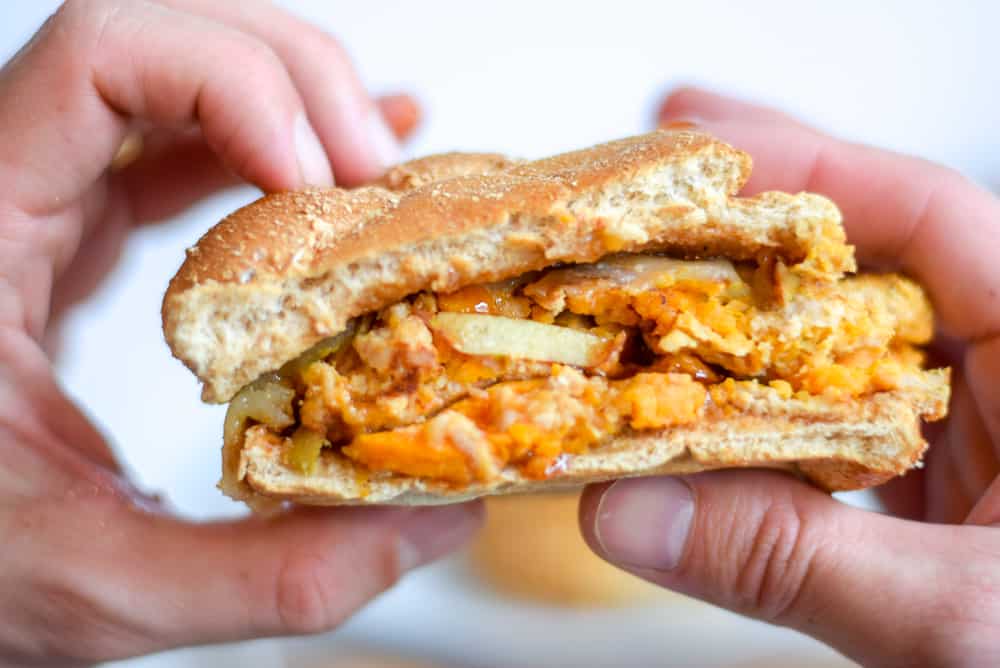
Spreading Protein Out Throughout the Day
In today’s world, most athletes get enough protein at dinner, but spreading it throughout the day and getting adequate protein at breakfast and lunch can be more challenging!
So, relying on staples like high protein overnight oats or a mint chocolate black bean smoothie can help meet your needs in the morning.
I love Factor meals for high protein lunches and dinners, especially during busy seasons.
Like any athlete, runners should be getting protein at every meal, spread evenly throughout the day, to aid in recovery time and reducing muscle breakdown.
The focus on protein should happen after a workout as opposed to before a workout, though there is some literature suggesting that pre-workout protein may mitigate some of the muscle breakdown and soreness.
See more details about protein for runners here. A good rule of thumb is aiming for 25-30 grams of protein per meal.
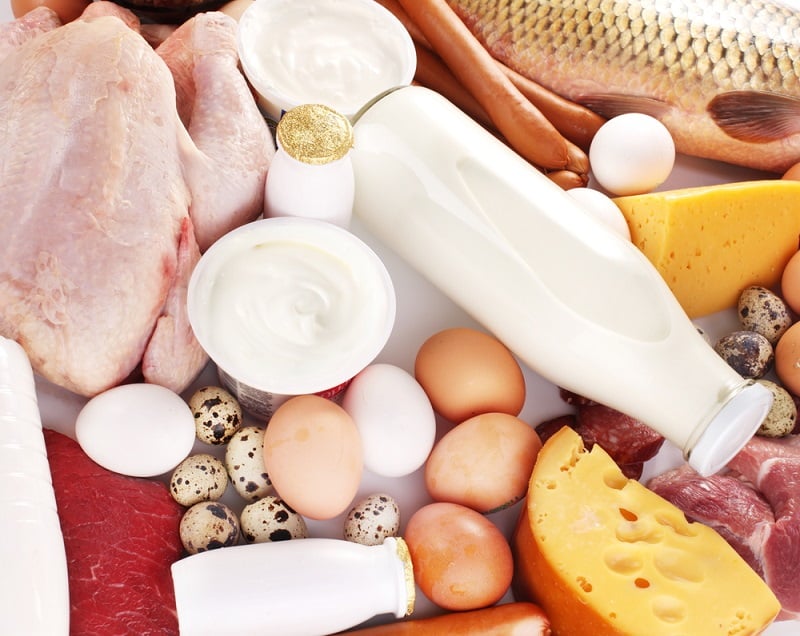
More on the difference between pre workout and post workout nutrition.
Even when you have little time, many of these are ready quickly, don’t require cooking (yogurt, string cheese, beef jerky), or can be made in bulk in advance (hard boiled eggs).
- eggs
- beans and legumes (we always make vegan edible cookie dough and Maple BBQ chickpeas with canned chickpeas!)
- cheese
- dairy milk, soy milk or even chocolate milk for a nice carb/protein blend
- yogurt and cottage cheese
- beef jerky/turkey jerky
- potatoes and sweetpotatoes
- protein powder (tips on finding a protein powder for runners)
- chicken breast or thighs
- red meat – great for iron intake!
- pork or pork sausage – Great for this hands off sheet pan sausage and veggies
- chicken sausage (quick to cook!) for this chicken sausage sheet pan meal
- meats and poultry (we use Butcher Box for sustainable, affordable options)
- seafood – Don’t forget about canned tuna/salmon, frozen shrimp/salmon in addition to fresh – they are more budget friendly and shelf stable.
- high protein pasta (this and this are favorites)
- quinoa
- nuts/seeds (great for these peanut butter cheerio bars)
- hemp seeds
- tempeh – air fryer tempeh pairs well with any carb!
- tofu
- edamame
- meat substitute products (Beyond Burger, Impossible Burger, Gardein, MorningStar, etc)
SAVE $50 WHEN YOU TRY BUTCHER BOX TODAY! Butcher Box sends you nourishing, grass-fed, organic meat and seafood. My personal favorites are the wild caught salmon, organic free range diced chicken breast, and beef barbacoa. We have so many recipes with these nutritious, delicious ingredients, like this salmon below.
Save $50 on your Butcher Box order!
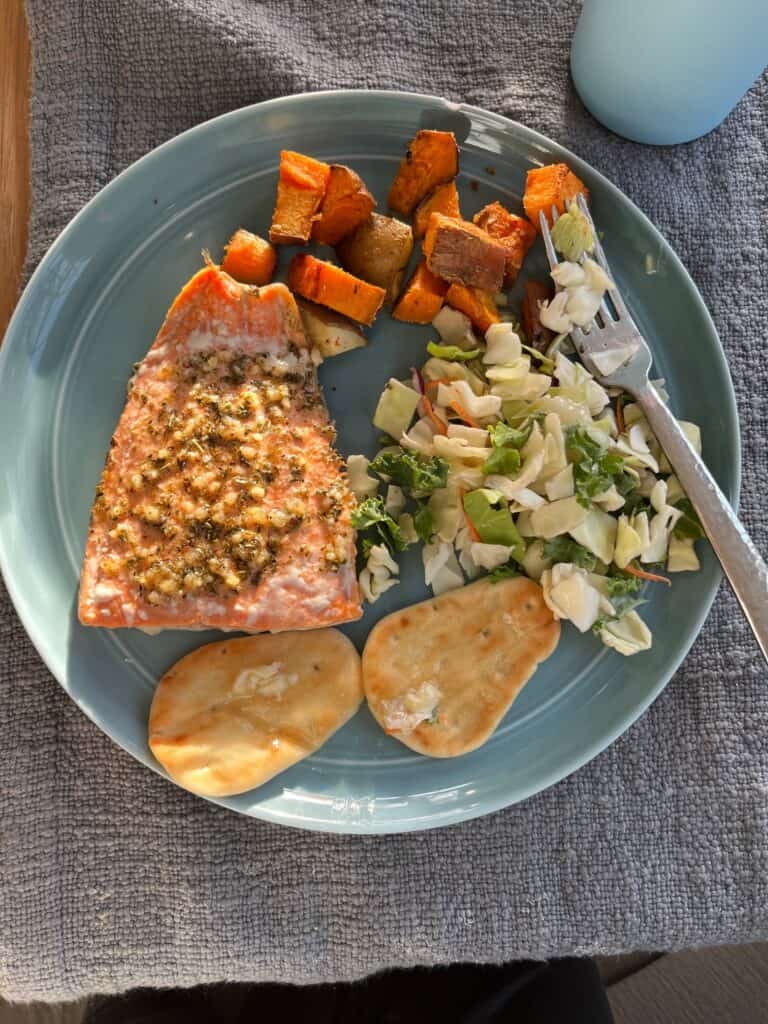
While there’s no best protein for athletes, it’s so important to get a variety of foods to ensure a distribution of the amino acids, especially leucine.
Leucine is an important one, specifically, for athletes because it can help with muscle building and reducing breakdown, among other things.
Healthy Fats
As mentioned above, nuts and seeds are great sources of anti-inflammatory omega 3 essential fatty acids and a long lasting energy source.
- avocado or avocado oil
- olive oil
- seafood, especially salmon and tuna
- olives
- grass fed beef
- hemp seeds
- flax seeds
- hummus
- chia seeds
- nuts and nut butter
- tahini (great in this tahini lentil hummus and this tahini lime dressing)
- dark chocolate (my favorite of all time and this is good too)
If you want to try making your own peanut butter, try this cinnamon salted peanut butter. So easy!
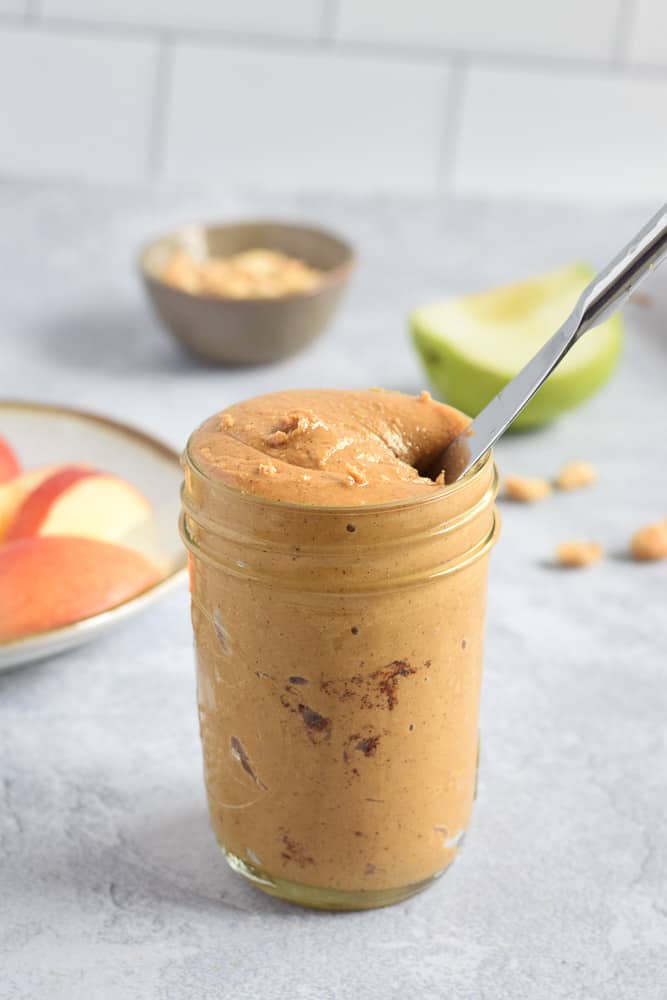
Snacks
Did you know my college nickname was snacks? And for good reason. I was (and still am!) always snacking on something.
Snacks are the perfect opportunity to bridge the gap between meals and keep you from getting too hungry.
Furthermore, they provide additional opportunities throughout the day to get nutrients in, like whole grains, fruits and vegetables, micronutrients, fiber, etc.
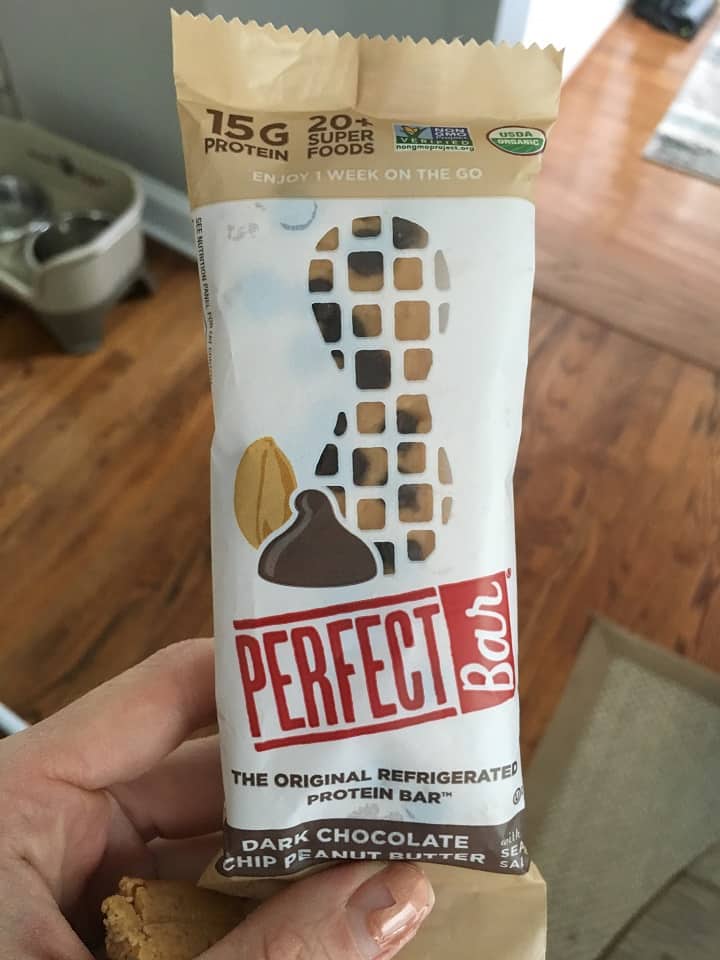
It’s really difficult to meet your nutrient needs as an athlete through just three square meals, so consider these opportunities.
I love:
- Kind Snacks granola
- Kind Protein Bars
- Perfect Bars
- Protein stix (Actually found these really tasty!)
- pop chips, popcorn
- Protein Power Balls
- trail mix
- string cheese
- Fruit
- Lara Bars
- Baby carrots and hummus
- Energy bites (these are so good!)
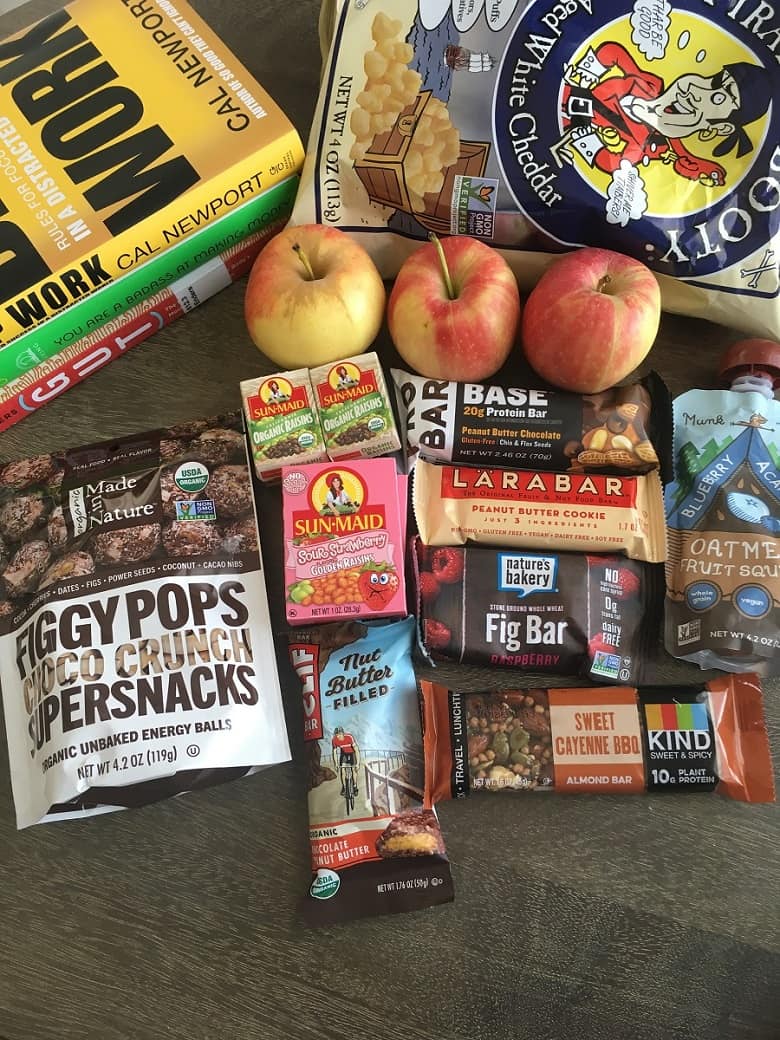
Convenience Foods
As I discussed in my marathon training, when you’re in training, you have to think about your energy and “slices of the pie.”
When your training increases, that’s going to take up a larger portion of the pie. That means there are fewer of other portions, so you want to streamline or make it as easy as can be.
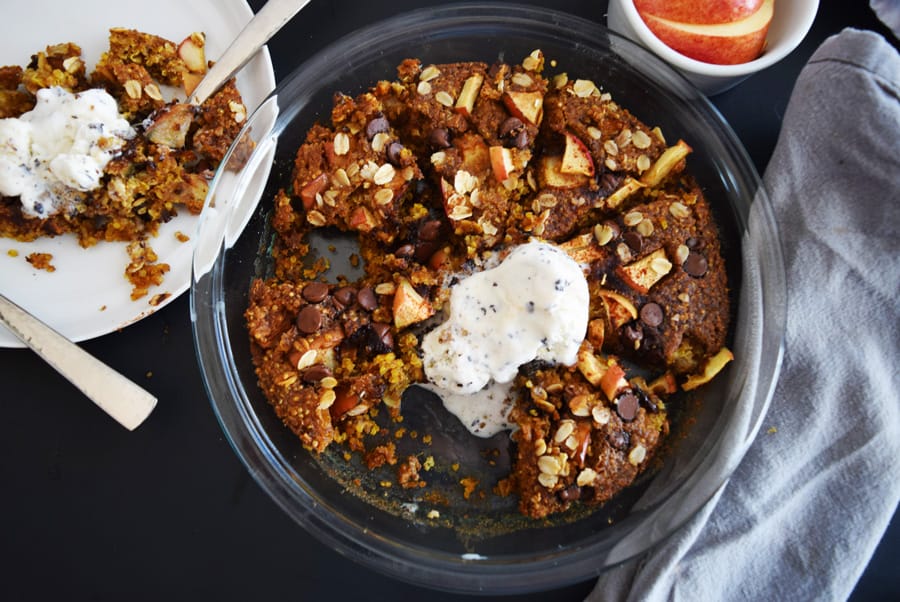
That may look like:
- Ordering more meal delivery
- Paying for more babysitting
- Rotisserie chicken
- frozen pizza
- Buying pre-chopped veggies or more convenience bars
- Eating out or getting takeout
- Power Bites pre-made rather than making your own
- buying granola rather than making your own
- Hiring help on your business
All of these things can make your life easier and reduce the amount of time spent on other things.
I really love Blue Apron their directions are easy to follow, and the food is delicious.
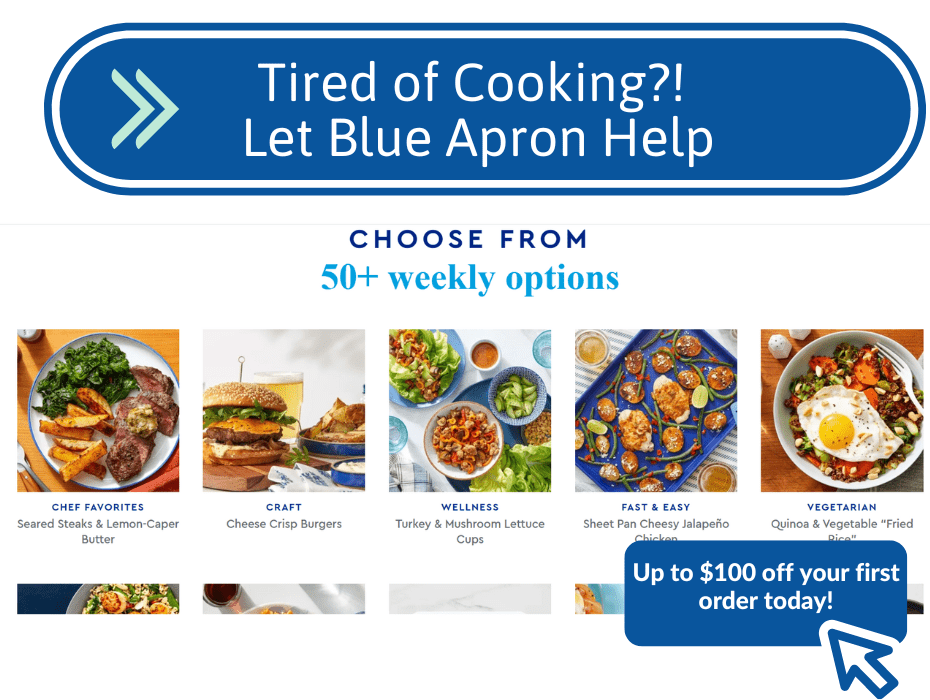
Fun Foods
For lack of a better term, these foods don’t necessarily fall into the above categories, though they are technically carbohydrates.
They are less nutrient-dense, though I would argue, still important and maybe even essential to help meet energy needs.
Plus, they generally improve quality of life and convenience is a big factor!
Some of my favorites include:
- ice cream and ice cream cones
- peanut butter cups
- teddy grahams
- graham crackers (great for a pre run snack)
- frozen waffles (a staple pre run meal for me)
You’ll want to include some of your favorites too.
Repeat after me – eating sweets regularly reduces the feeling of out of control eating and binge eating.
Supplements
I’m a big fan of getting what you can through food.
That being said, many athletes need certain supplements, sometimes iron, Vitamin D, magnesium, calcium, or omega 3 fatty acids.
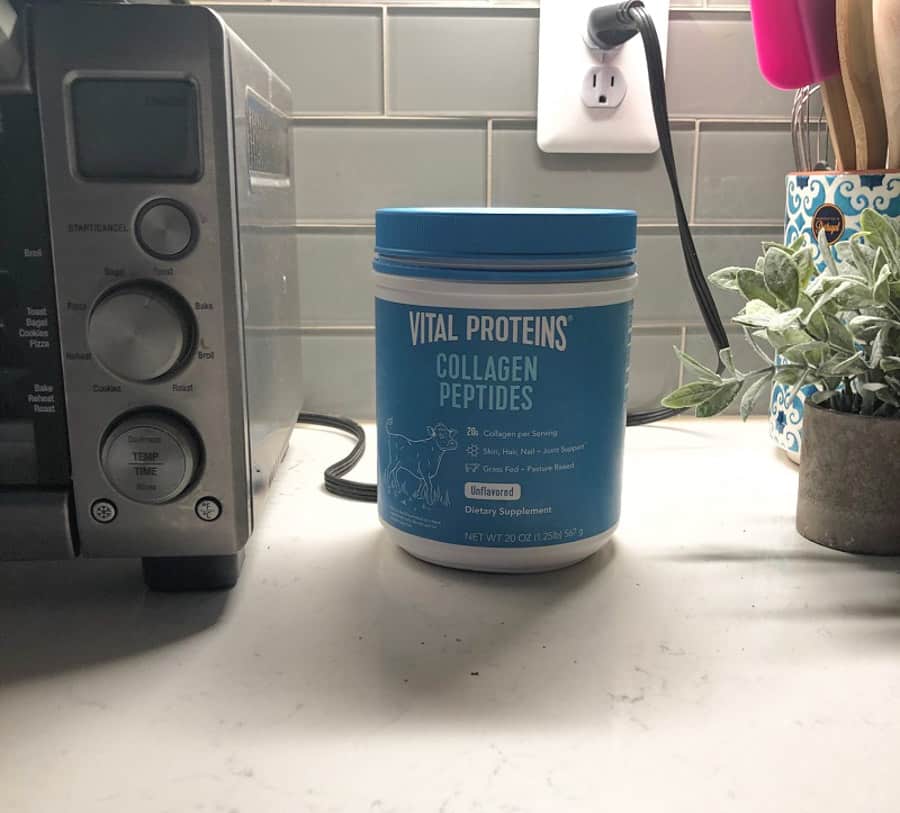
Sometimes, supplements for runners are necessary.
- Creatine – I pretty much always recommend creatine to my athletes because it’s one of the most researched supplements out there and there are not really any negative side effects.
- Collagen – I personally add collagen to my coffee each morning. It’s not a magic elixir, but there is some interesting research coming out about athletes and collagen.
- Tart Cherry – This can be great post workout, and can help minimize inflammation. In this study, participants ingested just over a cup of tart cherry juice twice daily for 7 days, and it resulted in less pain after running. See more about tart cherry juice for runners.
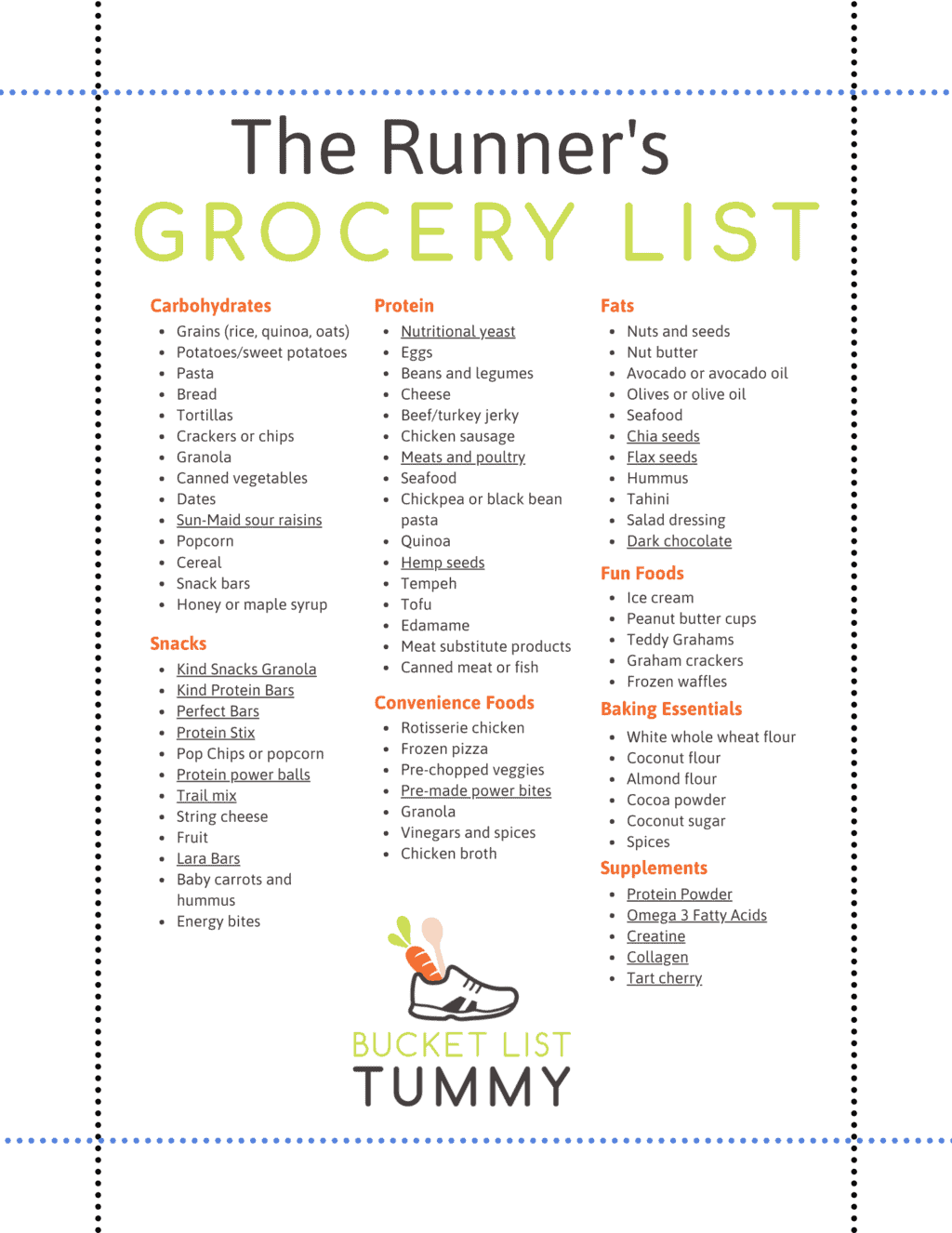
What are some of your favorite grocery foods?
Support Bucket List Tummy

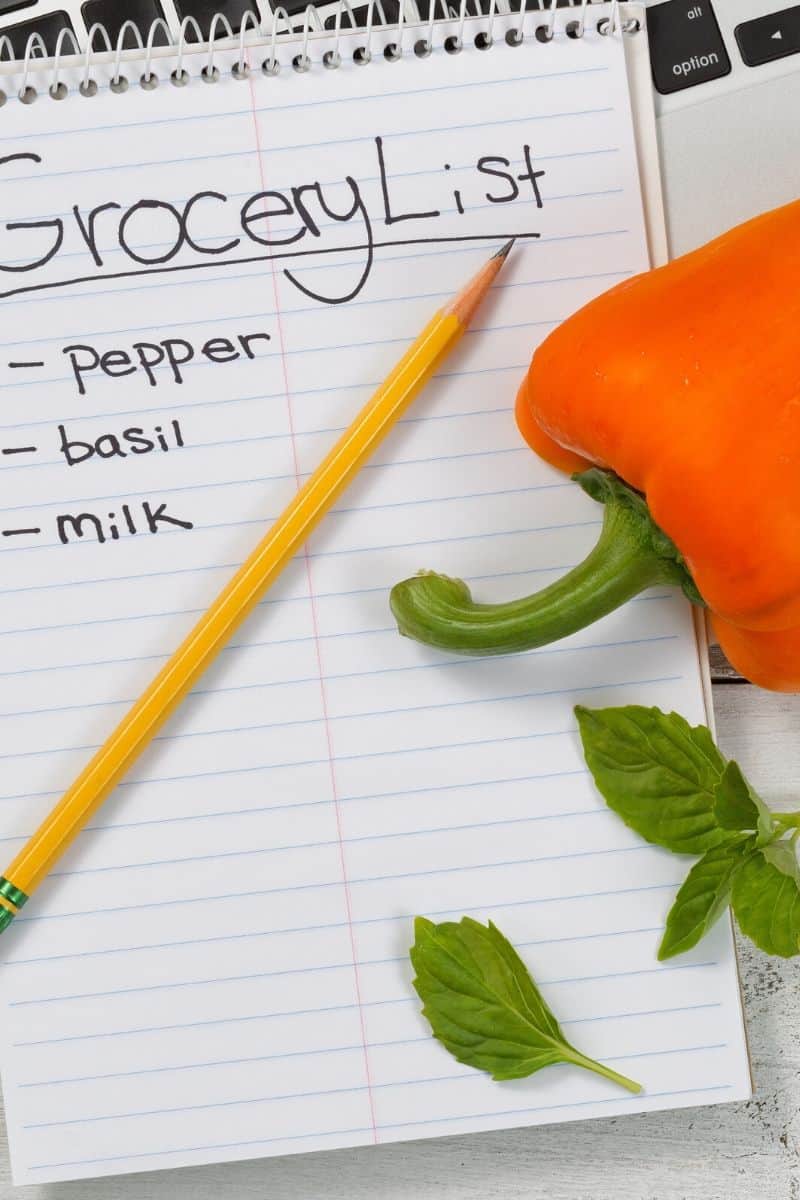
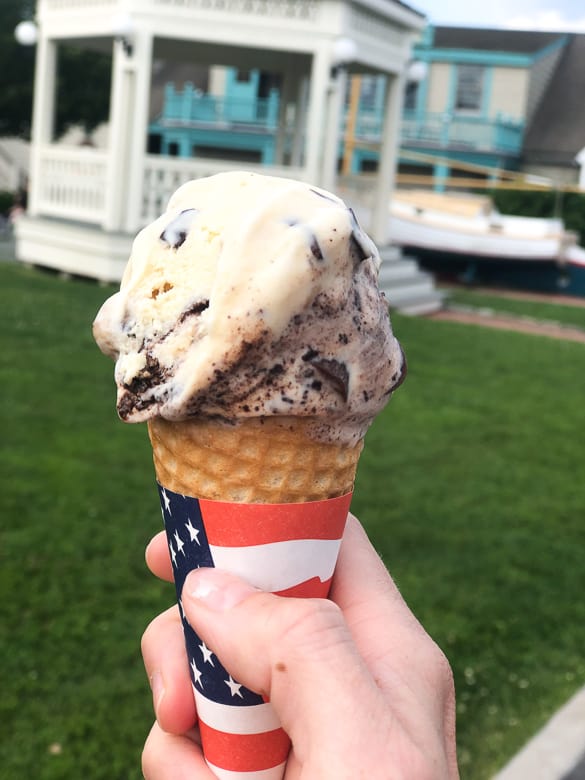


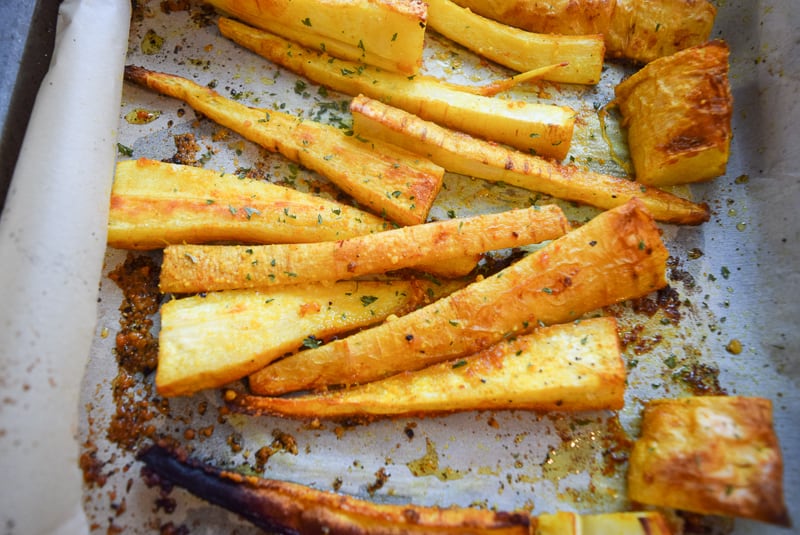
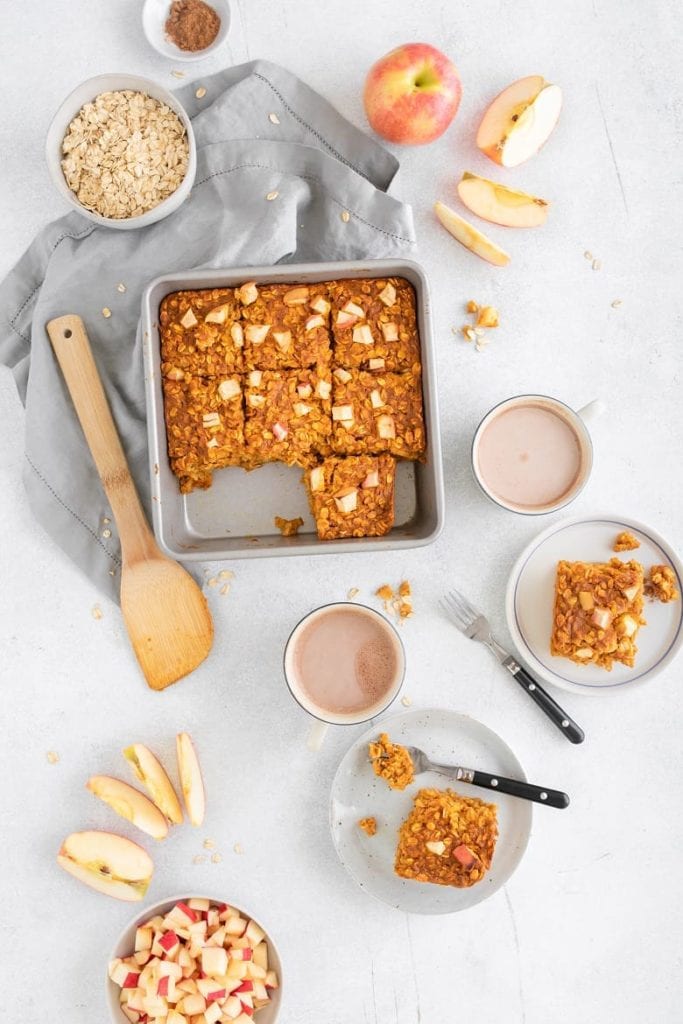


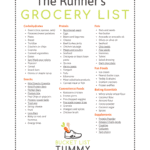
Like This Content?
Support Bucket List Tummy